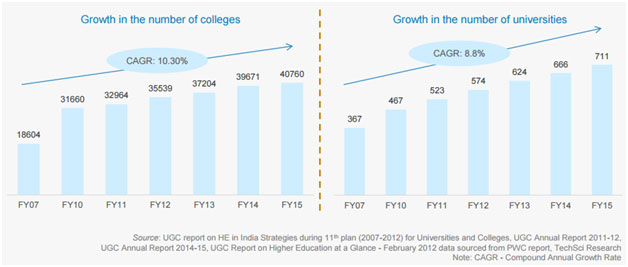Autonomy in education sector looks to be a Utopian concept in India: Dr Rajan Saxena


Narsee Monjee Institute of Management Studies (NMIMS), the acclaimed private university in the country and pioneer in the education industry since last three and a half decades, has been relentlessly capitalising on innovation as a key for success in the business of education. Among others, employability of graduates, rigor in admissions, academic, evaluation graduation processes and entrepreneurial leadership to stay ahead of the curve are some of the tenets that the university focuses on. It is in the process of establishing campuses across the country and selecting the best minds as faculty and institutional leaders along with pursuing national and global accreditations for all its programmes and schools. Hence, briefly talking about the journey of the university over the years, current state of the education industry in India and the future strategies of the university, Dr Rajan Saxena, Vice Chancellor, Narsee Monjee Institute of Management Studies (NMIMS) spoke to Educationbiz.com.
Across which disciplines is NMIMS offering education courses?
NMIMS has grown into a flourishing University, offering courses across various disciplines, such as management, technology, science, pharmacy, architecture, commerce and economics. Around 12 schools and six centers of excellence are constituents of NMIMS, while the university has over 9000 students enrolled in campus programmes and about 550 faculty members. About 50 percent faculties have Ph.D qualifications.
Largely the students are applying for MBA, BBA, B.Sc. Economics, B.Sc. Finance and MBA Tech programmes.
How has been the journey of the university so far and what are the major changes you witnessed?
Education sector has been one of the most challenging sectors, especially in management education, which I have seen growing over a period of time from just about 100 management schools at the turn of the century. Today we have more than 3000 management schools in India offering management degree or diploma programmes and catering to different target group of students. It is a journey that has been fulfilling and if ever I were to restart my career, I would do it the same way.
Education sector has seen a host of reforms and improved financial outlays in recent years that could possibly transform the country into a knowledge haven.
With human resource increasingly gaining significance in the overall development of the country, development of education infrastructure is expected to remain the key focus in the current decade. In this scenario, infrastructure investment in the education sector is likely to see a considerable increase in the current decade. Furthermore, with online modes of education being used by several educational institutions, higher education sector in India will witness some major changes and developments in the years to come.
How does NMIMS contribute for the development of education in the country?
We at NMIMS contribute to the development of education through enlarging access to our programmes to a very large group of students who are eligible, but are not able to get admission in national institutions either for the want of capacity or are not able to afford it. We have taken education to rural youth in India. Another major contribution has been in terms of creating benchmarks for quality education. At the same time we have also set standard for governance of education system.
According to you what are the factors driving business of education in the country?
There are four major factors that are driving business of education in India. The most important is the demographic structure led by young and aspirational nation. The second factor is the continuous growth of Indian economy since 1991. This has opened up avenues for new economic activities and hence the demand for talent. The demand is not just limited to metro cities with economic growth and emergence of new towns; demand for education will grow in tier II and III towns. The third factor is globalisation, today information flows freely across markets. And the last is an increased focus of the government on education.
How competitive is your business model that keeps you ahead of the curve?
There are four tenets that we pursue to remain ahead of the curve. The first and foremost is innovation. Thus, to satisfy the emerging needs of this country, we continuously innovate in programmes and processes. The other tenet of our business model is employability of our graduates. We have invested in skill building of our graduates and relationship with industry. The third tenet pertains to rigor in our admissions, academic, evaluation and graduation processes. The entry and exit barriers are high in the institution so that the best and the most deserving students join NMIMS. And the last piece in our business model is relates to entrepreneurial leadership. We have emphasised on building a startup culture in our institution building and our attempt is to make each leader an entrepreneur.
How are government policies conducive to run a varsity in the country?
I believe that government policies are increasingly becoming facilitative and non-intrusive. Yet we have to go a long way to make universities outstanding learning centers. Autonomy today looks to be a Utopian concept in India. It is unfortunate but a reality. The best universities all over the world are autonomous.
What are your future strategies with NMIMS?
Our objective is to emerge as one of the best private universities in India for world market. For this purpose, we are establishing campuses across the country and selecting the best minds as faculty and institutional leaders. We are also pursuing national and global accreditations for all our programmes and schools. We currently have NBA, SAQS (South Asian Quality Assurance) and AMBA (UK) accreditation. We are also investing in technology, which will help us to connect to the world market and would be recruiting international students.
How big is the education industry in India and by what percentage it is growing YOY?
India has one of the largest networks of higher education institutions in the world with 666 universities and 39,671 colleges. It is also the third largest in terms of education enrolment with over 21.5 million enrolments per year. The private education sector which was valued at an estimated US$ 96 billion in 2015 is estimated to reach US$ 133 billion by 2020.
The Government of India has allowed 100 per cent Foreign Direct Investment (FDI) in the education sector through the automatic route since 2002. In the year 2015 government was expected to launch New Education Policy to address the changing dynamics in the education industry of the country as per the requirement of the population.
In February 2017, the Central Government approved the proposal of conducting a single entrance test for engineering & architecture seats at UG level, from 2018.

Please tell us about NMIMS’s MPSTME students’ participation in Transform Maharashtra competition?
The students from NMIMS University’s Mukesh Patel School of Technology Management and Engineering (MPSTME) participated in three different themes like Transforming Rural Education, Clean state: Swacch Maharashtra and Jai Kishan: Drought Free Maharashtra in a group of 5-6 members in each team. The solutions received from the students were being judged for two exclusive categories of prizes ‘Judges’ Choice’ and ‘Popular Choice’ competing.
In the competition that saw more than 4 lakhs students competing, team from MPSTME named Sarva was 2nd runner up as per the Judges Choice Winners, where they presented their thoughts on the theme ‘Transforming rural education’. The other two teams Vermicare and Innovation for Nation also presented their ideas on Clean Slate: Swacch Maharashtra and Jai Kisan – Drought Free Maharashtra. Both the teams secured their place in the top ten best teams in the Popular Choice category on the basis of online voting.










